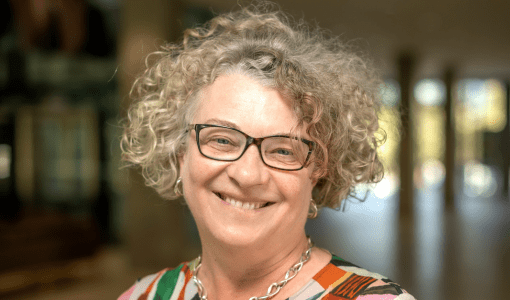
We recently hosted our 2024 Leaders Brunch. These events bring together leaders from our Partner Organisations to learn and collaborate on emerging priorities relating to diversity and inclusion in our sector. This year we focused on the critical yet challenging topic of sexual and gendered harassment in the workplace. Here, Annie Fenwicke, of EDI at Work Consulting, shares her key take-homes.

I was fortunate to play a role in the recent FW Leaders Brunch, a virtual session that combined keynote presentations with practical activities to create an opportunity to learn from expert speakers, but also each other, on responding to and preventing sexual and gendered harassment in the workplace. There were many valuable take-homes and resources shared, but a few stood out, which I wanted to highlight below:
Sexual and gendered harassment in workplaces is driven by gender inequality
Franklin Women Director, Dr Melina Georgousakis, opened the session by explaining why the topic was chosen for the 2024 Leaders Brunch, and why playing a role in changing the status quo was so intrinsically linked to the organisation’s mission and the purpose of their partner organisation alliance. Ultimately, gender inequality within industries, organisations and teams is the driver of gendered and sexual harassment. While women and gender diverse people are at greatest risk, it takes people of all genders to change the system.
New legislation has shifted the responsibility from individuals to employers, and from response to prevention
Olivia Perks, General Counsel for the University of Sydney, provided an overview of Australian legislation highlighting the Respect@Work Amendment Act 2021. This legislation introduced a positive duty for all employers to take reasonable and proportionate measures to eliminate sexual harassment and discrimination in their workplaces. Olivia also shared practical examples of how the University of Sydney is adapting to these obligations, which includes extending their duty to apply to all inappropriate forms of workplace behaviours and implementing an ambitious action plan to attempt to eliminate these behaviours.
The health and medical research ecosystem is at greater risk of sexual and gendered harassment than other workplaces
AAMRI CEO, Dr Saraid Billiards, shared the evidence on the prevalence of gendered and sexual harassment in our sector and some of the unique qualities that put our workplaces at greater risk. She also outlined the 8 priorities identified in the Respect in Research Report as key to reducing this risk, from building trust and accountability to diffusing power structures that exist. She reminded us that these conversations are not just about the egregious cases of harassment but all acts of disrespect, because if you don’t address the so-called ‘little things’, you’re fertilising the ground and environment for more serious things to happen.
Changing workplace culture is key to prevention and leaders are at the heart of this change
Special guest, Melanie Cooper, ex Global Head of Equity, Diversity and Inclusion at Rio Tinto, shared reflections and insights from 18 years of driving cultural change in the mining sector. The company has made public their internal review (and more recently their progress review) into bullying, racism and harassment. Melanie brought the term ‘culture’ to life through a framework she often uses, which is to think of culture as symbols, systems and behaviours. When asked how to engage more leaders in their responsibility to create safe and respectful workplaces, Melanie noted that many leaders felt a sense of fear about this topic and doing the right or wrong thing. But she emphasised that “we’re not looking for perfect people, we’re looking for growth and humility”. Melanie encouraged leaders to not let their fear own them and to “name it and try and do better because we need as many allies as we can”.
We all play a role in creating spaces where people are safe and respected
The event concluded with a workshop facilitated by myself (Annie Fenwicke of EDI at Work Consulting) and Kim Kwan from AAMRI. The workshop provided an opportunity for attendees to collaborate on practical (hypothetical) case studies relating to sexual and gendered harassment in different health and medical research-based environments. It was humbling to see such knowledge-sharing, practical insights and a-ha moments offered by the group. One standout was the important role that bystanders (or upstanders) played in these case studies. As stated by Lieutenant General Morrison AO when Chief of the Australian Army: “The standard you walk past is the standard you accept”. Leaders are essential in leading change, but we all play a role in shaping the workplaces we are in.
All attendees were provided a resource pack to help take learnings from the session into their workplaces. A little reminder that the nature of this topic means it can be distressing to many and these feelings can catch us off-guard. Please take care of yourself and others when engaging in the topic and related materials.
